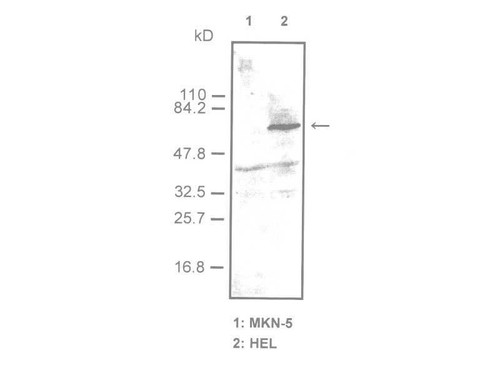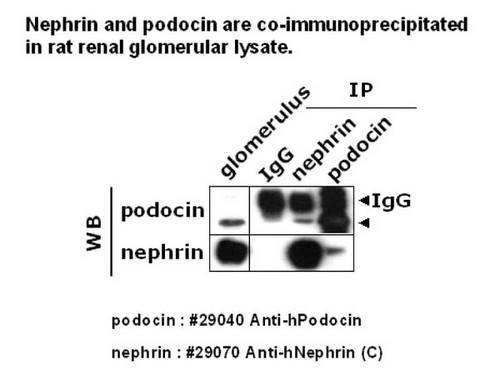The c-mpl proto oncogene was first identified as the cellular homolog of the viral oncogene v-mpl in the myeloproliferative leukemia virus (MPLV). However, based on homology with a member of the cytokine receptor superfamily, the c-mpl gene was predicted to encode a receptor for some cytokine. An antisense oligomer against c-mpl selectively inhibited megakaryocytic colony formation. Moreover, c-mpl-deficient mice had selectively dramatic decrease in the number of circulating platelets and megakaryocytes in the spleen and bone marrow. Collectively, these observations suggested that the c-Mpl ligand is identical to thrombopoietin (TPO). Several groups have purified TPO as the c-Mpl ligand. In fact, in vitro and in vivo studies have shown that recombinant TPO alone can support the proliferation and differentiation of megakaryocyte progenitor cells and maturation of megakaryocyte. There are two types of alternatively spliced isoforms of c-mpl, c-mpl-P (wild type) and c-mpl-K (truncated). For research use only, not for use in diagnostic procedures.
- application:
- WB, IP
- Catalog number:
- 18505-S
- Datasheet:
- formulation:
- Lyophilized product from 1% BSA in PBS containing 0.05% NaN3
- immunogen:
- Synthetic peptide of the C-terminal part of Human c-MPL-P
- MSDS:
- notes:
- For research use only, not for use in diagnostic procedures.
The datasheet for this product (see above) is intended to serve as an example only. Please refer to the datasheet provided with the antibody for precise details. - Other names:
- Please see datasheet
- Protocol:
- purification:
- Purified with antigen peptide
- size:
- 25 µg
- specificity:
- Reacts to UT-7/TPO (ref. 1)
- storage:
- Lyophilized product, 5 years at 2 - 8 °C; Solution, 2 years at -20 °C.
- Species:
- Human
- Host:
- Rabbit







